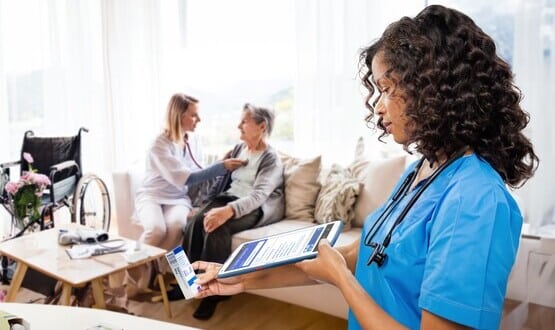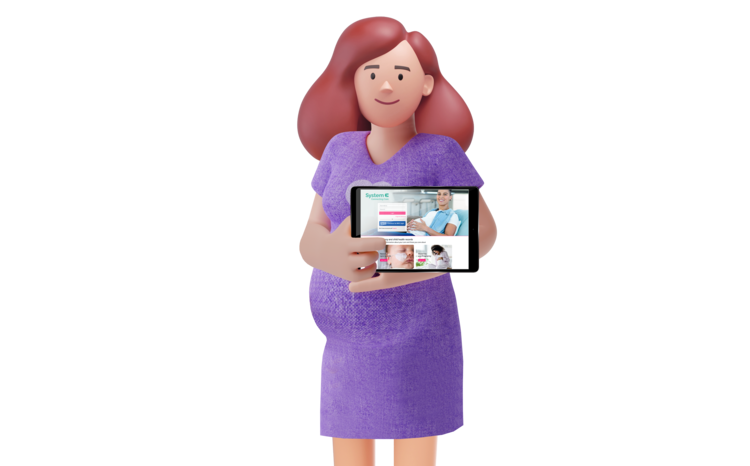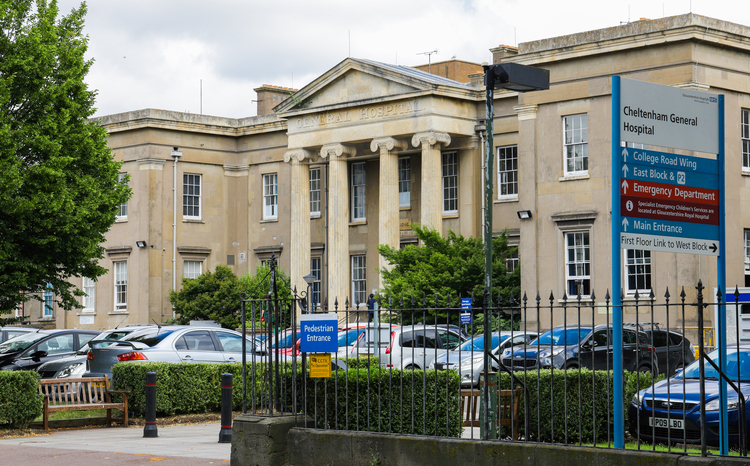Zebra proves value of barcoding in NHS but mission not yet accomplished
- 6 October 2023

Zebra Technologies, a global leader in enterprise mobile computing, barcode printing and data capture technologies, is beginning to demonstrate the value of barcoding in the NHS and wider healthcare sector and show how the NHS can learn from other industries.
Wayne Miller, EMEA Health Practice director at Zebra, spoke exclusively to Digital Health News at the annual Healthcare Excellence Through Technology (HETT) conference in London to present some of Zebra’s healthcare solutions and show how barcoding can make a significant positive impact in the NHS.
As well as providing technologies and hardware in industries such as retail, warehouse and distribution, transportation and logistics, energy and utilities, manufacturing, and hospitality, a key focus for Zebra is on healthcare.
Its health tech solutions provide patient identity management, mobile health devices, and business intelligence data to improve efficiency. Zebra’s history is in barcoding, hence the company name due to a barcode’s likeness to a zebra, Miller explained.
The company produces barcodes with a printer, scans them with a scanner and uses devices such as tablets and mobile computers. “We take these devices, bring them together inside solution, so connect them up to an EPR such as Cerner, Epic or InterSystems and pass accurate data backwards and forwards,” Miller said.
“We’re not only presenting data by printing something like a wristband or blood bags with barcodes on, we’re collecting the data with the barcode scanner and passing that through to an EPR or another system. So we present data, capture data, distribute data, and analyse data as well.”
One of Zebra’s key healthcare solutions is around positive patient identification, which allows access to accurate and essential patient information through the entire care journey. The two leading automated patient identification technologies are barcode labels and radio frequency identification (RFID) tags.
“When we have a wristband, which is one of our products, on it is your date of birth so you know the age of the patient, your NHS number and your name. So when you’re given that wristband it’s actually proving your identity,” Miller explained.
“When you go to the NHS or to the hospital, what you’re doing is giving positive patient ID with a barcode… having that wristband with all the data on it actually enshrined to patient safety.
“It was only about 2009 that NHS England started suggesting that the NHS should start using barcodes, and they’ve still not finished that journey. So we’re still here helping hospitals along that journey,” he added.
Learning from other industries
Miller highlighted the success of barcoding in other industries and how the NHS can learn from those examples and implement them in its own sector. “A good example of this [barcoding] is home delivery,” he said.
“They’ve got a printable label, the front of that label is meaningless, it’s just a number and only if I have access to a system by a mobile computer would you know what’s inside that package and the delivery person doesn’t need to know what’s inside that package.
“So take those kinds of principles, and what we do in retail is scan a barcode, it tells the retailer you’ve bought a tin of beans, it also says this is the price and tells the supply chain to order the right amount. So all the different Tesco, ASDA and Waitrose around the country are all doing all those orders all day long to tell their central office how many things have been used,” Miller explained.
He also explained Zebra’s use of RFID to do immediate scans of items very quickly. “We don’t have to actually find the individual barcode, we can scan technically 1,200 items in a second, so that’s where we think the next step forwards for the NHS.
“At Zebra we’re looking at what are the existing technologies, tired and tested and trusted technologies, that work perfectly well in other industries that we can then demonstrate to the NHS that return on investment,” Miller told Digital Health News.
“We all like to say it’s cutting edge; it’s not really, but it is to the NHS because they’ve not seen it before.”
The impact of Zebra and RFID at Hull University Teaching Hospitals
An example of how Zebra Technologies have already made a positive impact in the NHS is its work with Hull University Teaching Hospitals NHS Trust as part of the Scan4Safety initiative.
The first-of-its-kind initiative in healthcare provides guidance to NHS trusts to deploy the GS1 standard to uniquely identify every person, every product and every place in healthcare. The trust initially planned to pilot RFID as part of the programme in its Intensive Care Unit (ICU).
A small number of vendors, deemed capable of supporting such a large deployment of RFID, were invited to tender through a compliant NHS procurement process. As part of its discovery process, the trust’s project team spoke to Zebra customers from other sectors.
“After speaking to vendors, it was Zebra who were most open to accommodating our changing needs, with its cloud-based Zebra MotionWorks healthcare medical equipment tracking solution, said Rachael Ellis, Scan4Safety programme director at the trust.
“This willingness to listen to our requirements and be versatile was the primary reason we went with Zebra, along with its customer references and its ecosystem of technology and support.”
Following the major deployment of RFID and Zebra’s solution, the trust has now labelled over 72,000 assets and is labelling up to 2,700 sterile trays each week, which is believed to be the largest healthcare deployment of RFID for real-time location solutions (RTLS) in Europe.
The project is also delivering a wide range of benefits across day-to-day operations, procurement and patient care. In terms of daily workflows, clinicians now spend much less time looking for equipment.
It is estimated that each search now takes less than four minutes on average, saving around 35 hours per employee per year, equal to 87,500 hours across 2,500 staff.
Ellis added: “The system is easy to use and colleagues have taken to it quickly. For me, the best outcome is a clear improvement to patient care.
“If we always have the right equipment on-hand when it’s needed, we can ultimately shorten length of stays which is a great result. The time savings are also eye-catching, and we see huge potential for RFID to be deployed across other Trusts.”
Zebra’s NHS mission
Zebra Technologies’ impact within the NHS and healthcare sector is already being felt but Miller ensures that there is still a way to go and their mission is far from complete.
“We’re helping the NHS digitalise, we’re helping them to use time more effectively and we’ve got to find a way of making the healthcare system more economic if we want the NHS to go for years and years and years,” Miller said.
“The only way we can do that is drive efficiency, and that’s our mission. Digitalisation is coming, it has to, and it has to catch up with other industries.
“I think the NHS is the right business to work with – the intent is to do it; we just need guidance and that’s what I do, guide them down the right technology route,” he concluded.






1 Comments
Useful article. RFID looks like the way ahead for clinical settings. Currently stock management in theatres relies on the staff having to scan the barcode manually on every item of packaging as it used during a procedure or at the end, which is time consuming and unreliable. I have seen RFID in use in every Decathlon store in France (maybe they are the same in the UK? I don’t know), where the shopper just places all the goods together into a box at the till and all the RFID data is instantly picked up and totalled, completely hands free. This would work so well in theatres.
Comments are closed.